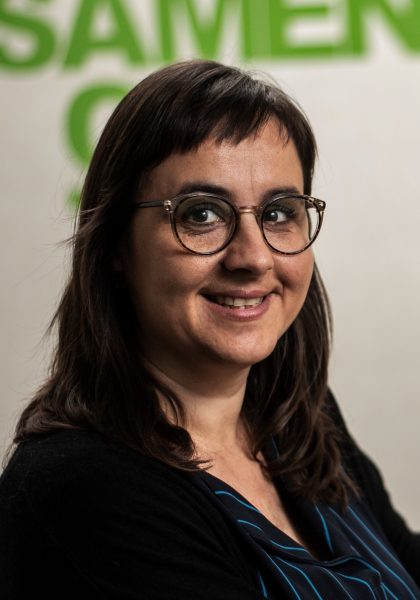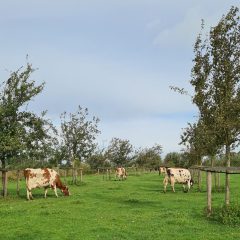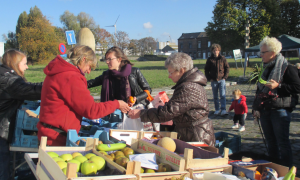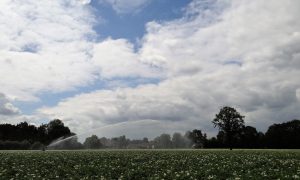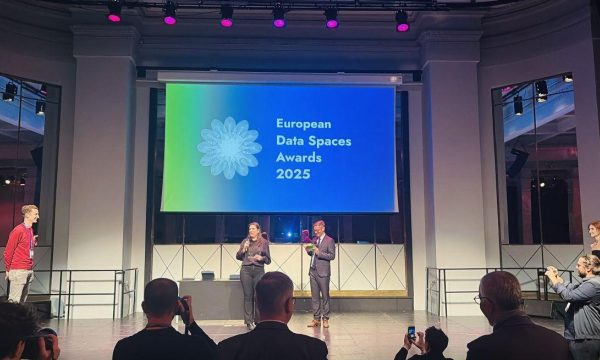Theme Profitable and resilient food systems
ILVO aims to contribute to improved profitability throughout the agri-food chain, without tradingin on environmental, climate, animal welfare or social objectives. After all, food systems can onlycontinue to exist in the long term if each link is viable and therefore profitable. But today thatprofitability is under pressure.

The changes we propose range from relatively minor adjustments within food systems to drastic changes in entire systems. These suggestions are situated at the level of production, processing, distribution and consumption. We focus on system innovations in a circular context, diversification and demand-driven production. The creation of new markets and marketing channels and a greater focus on added value are crucial to achieving a profitable and resilient food system.
Efficiency in a circular context
Efficient production has always been important for agriculture and the agri-food sector. However, in a circular economy, where raw materials, products and by-products are (re)used for as long as possible, efficiency is no longer a matter of separate links, but of the entire circular system. The use of by-products or waste flows may be less efficient in primary production, for example, but can lead to greater efficiency throughout the chain.
ILVO unravels the tensions that arise at the economic level during such transformation processes. We
show how the transformation to efficient circular systems can be made smoother, what partnerships
and agreements are needed to achieve this, and what this means for the profitability of various links in the system. In doing so, we look at circularity at different levels, from products and materials over raw materials and energy to residual flows. We develop and evaluate technologies that can be useful in the circular economy and new data flows that can contribute to greater efficiency throughout the chain.
Diversification
A greater diversity of products, processes or markets increases efficiency and can also deliver greater
profitability and resilience. On farms, for example, this involves engaging in multiple agricultural activities to create more sales outlets. Combinations with non-agricultural activities, such as farm tourism or landscape management, are also possible. In this way, farmers spread the risks and farms become a little more agile in case of unforeseen circumstances.
ILVO provides applicable knowledge about diversification at different levels. We focus, among other things, on new cultivars, new crops (such as soy and quinoa), new cultivation systems (such as agroforestry), new products and processes, new marketing systems and citizen-farmer models
(such as CSA or short-chain sales) and completely new interpretations of the food system (such as
agroecology).
Responding to demand
By responding to societal expectations and new market demands, farms and companies can increase their competitiveness in a future-oriented way. New demands and expectations may relate, for example, to freshness, taste, health, animal welfare, environmentally and climate-friendly production or an innovative way of processing or selling. By responding to these, farms/companies can distinguish themselves from existing practices on the market and thus create added value.
Those who want to go a step further can create an entirely new market. This can be done, for example, by coming up with a groundbreaking solution to an existing problem or by discovering a new demand and immediately offering an answer to it. Such an approach increases competitiveness based on quality and has less to do with cost control. Within this context, ILVO is expanding its capacity to analyze market demands.
Maximal valorization
The value of a process, product or service can only be exploited well if companies reach the right customers in the right way. It is important to tell the right story, be transparent and authentic, choose a clear target audience, select suitable sales channels and build a good relationship with customers. ILVO investigates how farms can create added value, for example by focusing on local sales markets, niche markets or short-chain initiatives, or by providing ecosystem services such as carbon storage. We are also looking at how data collection and use can further support the narrative around authenticity, transparency and traceability.
New business models
As an independent partner, ILVO is looking for better business models for all links in the food system. We are looking at how we can improve the earning models for existing products, services, technologies and production processes. In addition, we analyze possible earning models for new developments. The earlier a potential business model comes into view, the sooner the development can be adjusted on the basis of that information.
Because a system innovation is developed in different stages, specialized research is needed to map out the economic picture. ILVO examines, among other things, how companies can gear their technologies, business models, chain configurations and system innovations to market demand. We also investigate whether existing technologies can be used in a different environment or for a different application.
Collaboration
ILVO strives for correct food systems, in which all links in the production chain earn a full income and there is a healthy distribution of added value throughout the chain. In order to make that possible, the various actors must collaborate as much as possible: chain partners, governments, consumers, research institutions, educational partners, interest groups, etc. ILVO makes its expertise available as a facilitator and generates insights, methods and trajectories that guide the partners together towards other tracks.
Contact an expert
